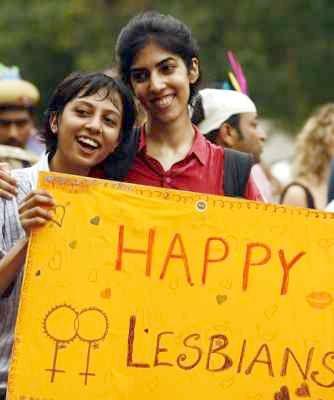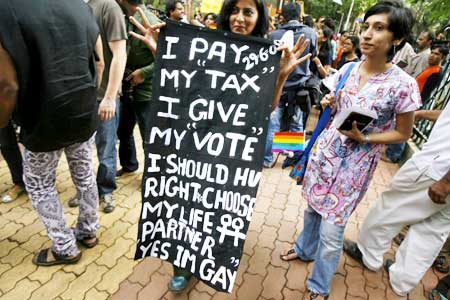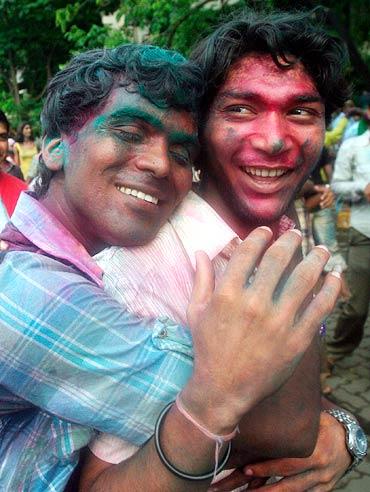 | « Back to article | Print this article |
Government finds gay sex IMMORAL. Do YOU?
Replying to a Supreme Court observation of February 16, Home Ministry tells Supreme Court that gay sex in India is immoral and against social order. Do you agree with the Ministry's stand? Tell us what YOU think!
The Union Home Ministry on Thursday told the Supreme Court that it was opposed to the decriminalisation of gay sex.
"This is highly immoral and against the social order," the Home Ministry told the apex court.
It said that India's moral and social values were different from other countries, and therefore, the nation should not be guided by them.
The Home Ministry was replying to a Supreme Court observation of February 16 that homosexuality should be seen in the context of changing society as many things which were earlier unacceptable have become acceptable with passage of time.
Do you agree with the Home Ministry's stand? Is homosexuality immoral? Share with us YOUR opinion! Click here and TELL US!
Gay sex is IMMORAL, Home Ministry tells SC!
A two-judge bench comprising Justices G S Singhvi and S J Mukhopadhaya, was then hearing a bunch of appeals filed against decriminalisation of gay sex.
Both judges opined that homosexuality should be seen in the light of changing times where phenomena of live-in relationship, single parents and artificial fertilisation have become normal.
They had also pointed out that many things, which were considered immoral twenty years back, have become acceptable to society now.
The bench said that gay sex was not an offence prior to 1860 and referred to paintings and sculptures of Khajuraho.
Earlier, the Delhi High Court had passed a judgement in which it decriminalized Section 377 of Indian Penal Code (IPC) covering a sexual act in private between consenting adults.
Gay sex is IMMORAL, Home Ministry tells SC!
Senior Advocate Amrendra Sharan, who opposed the Delhi High Court order of decriminalising gay sex on behalf of the Delhi Commission for Protection of Child Rights, had then submitted that social issues cannot be decided on the basis of sculptures.
The apex court bench, however, observed that it is a reflection of society of that time and homosexuality should not be seen only in terms of sexual intercourse.
Earlier, the Supreme Court bench had asked the anti-gay rights groups, challenging legalisation of gay sex to explain how such acts are against the order of nature as submitted by them.
The apex court was hearing petitions filed by anti-gay rights activists and also by political, social and religious organisations which have opposed the Delhi High Court verdict decriminalising homosexual behaviour.


